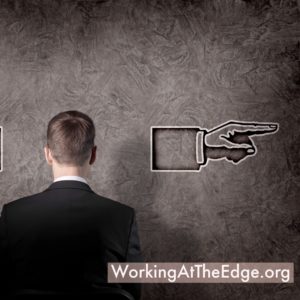 I came away from the recent EdSurge Fusion event asking an important question: Is there a disconnect between how we support our current learners in career exploration for a future of exponential change and job displacement? The question was prompted after attending two inspiring and thought-provoking sessions: AI, AR, VR: Creative Future or Chaos with Tom Vander Ark (Getting Smart), Benjamin Schrom (Google) and Mirjana Spasojevic (HP); and Open Your Mind to the World of Work with David Miyahsiro and Ed Hidalgo from Cajon Valley Union School District.
I came away from the recent EdSurge Fusion event asking an important question: Is there a disconnect between how we support our current learners in career exploration for a future of exponential change and job displacement? The question was prompted after attending two inspiring and thought-provoking sessions: AI, AR, VR: Creative Future or Chaos with Tom Vander Ark (Getting Smart), Benjamin Schrom (Google) and Mirjana Spasojevic (HP); and Open Your Mind to the World of Work with David Miyahsiro and Ed Hidalgo from Cajon Valley Union School District.
Vander Ark shared at the top of his session, “We are at an extraordinary turning point in human history.” With advancements such as self-driving cars, virtual reality, artificial intelligence, new demands for empathy, genomics and personalized healthcare, IoT sensors, learners as data scientists and creators of immersive experiences, voice recognition and all the potential ethical and legal issues surrounding new technologies, change is happening fast and furious – exponentially. In many ways, it’s already a part of our world. Just not on the radar of a majority of educators, even those promoting progressive education.
These technologies are changing how we live, work and learn. How will the current job market be disrupted in the next five, ten or more years as part of an inevitable evolutionary process? There are already predictions that 47% of our current jobs will disappear within the next 25 years. We surely don’t have a crystal ball, but we might just focus in schools on the skills necessary for success in this new world: those things that are uniquely human – creativity, entrepreneurship, critical thinking, empathy, and resilience. But are we?
David and Ed from Cajon Valley just might be. They are doing some interesting work to help middle school learners discover their strengths, challenges and values to find career options that fit their unique capabilities. In Cajon Valley, middle school students intentionally become self-aware and then explore a host of career possibilities along a continuum of exploration, simulation, experience, and internship. Their driving question in Cajon Valley is How can a child aspire to a career they don’t know exists? You can read more about their work on the World of Work site.
Putting my learning together from these two presentations prompted these two questions I want to think further about:
- How do we as leaders intentionally engage stakeholders (leaders, teachers, learners, parents, communities, boards, etc.) in conversations about the shifting job market and the skills/dispositions required for success in life?
- How do we intentionally intersect that conversation with new ways for children to explore potential careers in an uncertain future world of work?
Is career exploration for the future one of our blindspots as learner-centered leaders? In other words, are we preparing kids for the careers of today instead of the careers of the tomorrow? What would our learners think? What would our leaders think? What would our parents think?
Connect with Randy on Twitter and on the TLTalkRadio podcast!
Get new content delivered to your inbox and the ebook 3 Key Principles of Digital Transformation. The ebook contains valuable information from my experience leading a digital transformation and working with a variety of stakeholders over the past decade.
- A silver lining - January 22, 2022
- Is our use of tech working against us? 🤔 - September 8, 2021
- What’s NOT going to change in the next 10 years? 🤔 - September 7, 2021
This is particularly interesting to me today, as we spent a good deal of time discussing the ways in which we are supporting career aspirations for our students (in response to new state requirements). It seems that this has turned into another box we need to check, and it really feels like we are having the wrong conversation entirely.